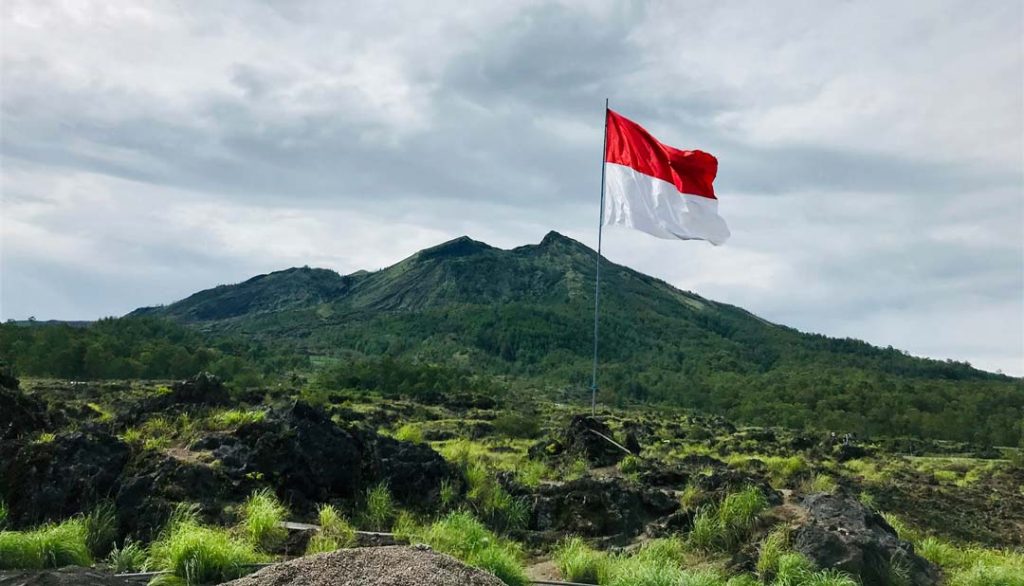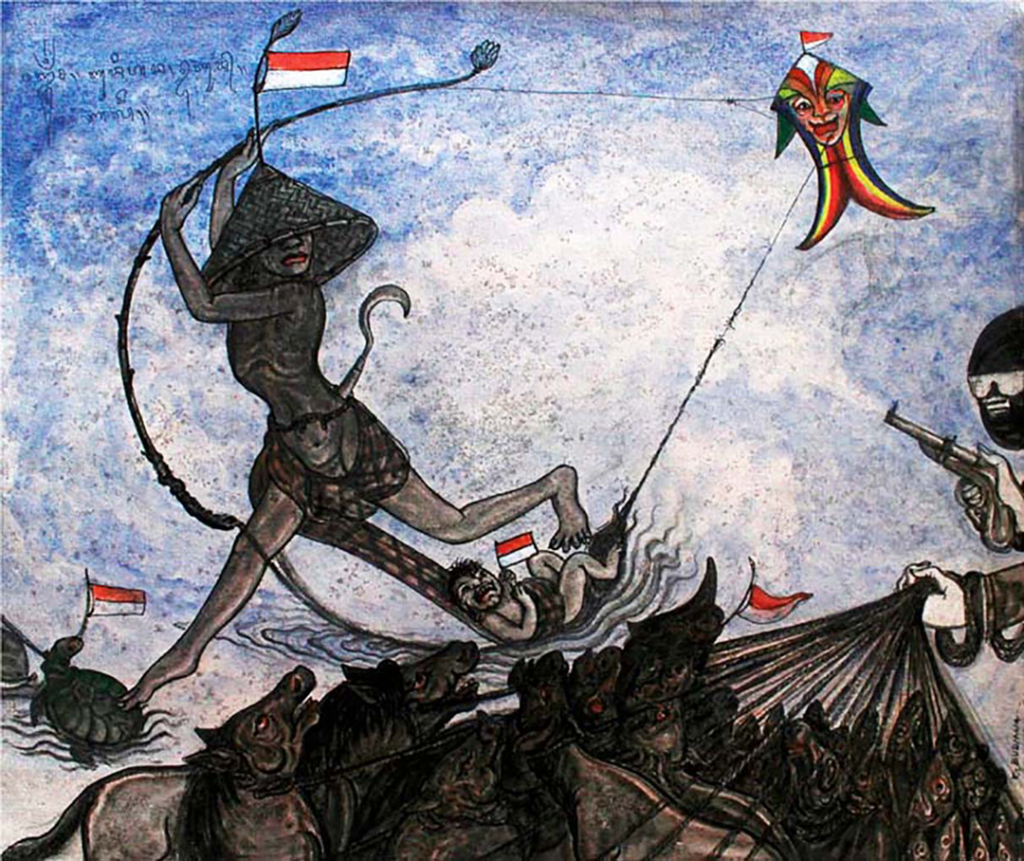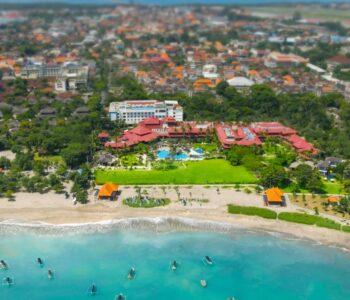Journalist Eric Buvelot and socio-ethnologist Jean Couteau have recorded 20 hours of discussion about changes that have happened in Bali since the 70’s. The conversation was structured and segmented according to many different aspects of Balinese life, mostly from a socio-historical perspective, to trace all the overturning in Balinese mores in the last 50 years, when modernity started to shape new behaviours.

At the core of these changes is the birth of individuality in a communal society and the revolution it implies. The resulting changes have been more significant in 50 years than the ones that happened during the previous millennium. At the end of this project, a 16-chapter discussion book will be published with the purpose of measuring to what extent Bali has morphed in so little time, a work never done before, encompassing all Balinese social matters. The French edition is due at the end of 2020 at Editions GOPE. The English one will follow next year. In this month of “TujuhBelasAgustus” (Independence Day), we take a look with Jean and Eric at how nationalism has evolved both in Indonesia and the significance of this notion in the Balinese psyche…
E B: Who represents the Indonesian “other” in Bali? Is it just any non-Balinese with a national ID card?
J C: Basically the “other” of today is the poor Moslem man. Why the poor? Because the rich and educated Moslem visitors usually don’t display their religious identity. They are just vacationing and they stay in high star hotels just like ordinary tourists… Yet, regarding “otherness”, it is only relatively recently that it has found itself accentuated, through a recent emphasis on religious identity. To which, it must be underlined, many Indonesians remain opposed to this day.
E B: How do Balinese view themselves in the Indonesian republic?
J C: They have no problems with their Indonesian-ness as long as the country remains legally semi-secular. As long as Islam is not made the religion of the state. It must also be added that the Balinese have integrated all the more easily the values of the Indonesian republic that Sukarno, the first Indonesian president, was Balinese through his mother. It is the same Sukarno who granted official recognition to Balinese Hinduism in 1958. An important socio-cultural fact of these days must also be underlined regarding Bali as well as Java, the two strongholds of Sukarnoism. People then did not define themselves in ethnic and religious terms. They were Indonesians, full stop, and their main concern was to face poverty rather than to obtain recognition of their difference. The Indonesian brand of humanism, which emphasised in the other the common points rather than the differences, functioned very well.
E B: What has been the evolution in Bali since those days?
J C: Indonesia first witnessed the surge of communism and its harsh repression in 1965-66. What did the post-Sukarno military government do to fight the communist ideology? It emphasised tradition and developed the teaching of religion. From that time onward, not only did religious teaching become a priority, but it increasingly consisted of restructuring religion around a literalist interpretation. The reform restructured belief into a half import from India, and half conceptualising on the basis of Balinese tradition, novel principles that are little-by-little taking root into daily religious practice. The animism and ancestors ‘cult’ background thus was made to shrink, as Bali became increasingly monotheist. What has been put to the fore in official prayers is Sang Hyang Widhi and his “manifestations”, thus linking the past pantheistic/polytheistic tradition and the monotheism made compulsory by the Indonesian state! It is Indonesian education that has inadvertently generated this transformation. More and more people are now making a literal interpretation of religious texts. Thus what was originally a political instrument to fight left radicalism and its dreams of absolute social justice has become with time an instrument of religious crystallisation.
E B: Is it related to nationalism, considering that the left is traditionally internationalist?
J C: No, it is more complex. Traditionally, in Indonesia at least, it is the left that is nationalist. Yet, regarding religion in Bali, as it was crystallising into a structured system of belief, there is little doubt that it was used, from the 1980s onward, as a weapon to resist large-scale non-Balinese investments in tourism. This is to link to the feeling of economic alienation sometimes felt in some Balinese circles, and to the concomitant ethno-demographic transformations of the island. All this has impacted the feeling of identity of the Balinese.
E B: Are there signs of ethnic or religious discriminations in Bali?
J C: It depends what you mean by these words. With an increasing number of foreign residents and of in-migrants from Java and other islands, we are indeed witnessing the appearance of spaces that are ethnically homogenous. Separation ensues. The status of the land enables this kind of thing. Previously land was mostly village property. Now it is fully individually-owned, which enables new types of social groupings. Tourism too is generating its own discriminations. There are Western-owned clubs that are de-facto closed to outsiders, hence to Balinese. Non-Balinese foreign communities also tend to isolate themselves, sticking to their own cultural and behavioural norms, and supported in the matter by hand phones, the Internet and foreign language television, that continuously feed their alienness. Ironically, Westerners who accuse Asian and Moslem communities of keeping apart in Europe are doing the very same here in Bali. They create ‘homogenous’ Western enclaves.

E B: One has sometimes the impression that some areas of the urbanised South of the island are not Balinese, at least in matters of religion.
J C: Yes, education accentuates the negative, taboos and dress codes are becoming markers of identity. This is unmistakable. It has unwitting consequences, as once put forward to me by a young sociologist of Udayana University, who referred for conceptual cover to the famous French sociologist Pierre Bourdieu. “To a Balinese, having a Moslem neighbor is not a problem,” he commented. “When he has two or three, it is still okay, but when it comes to eight or ten, he moves elsewhere, because he feels he has lost his ‘cultural capital’”… Yes, the accumulation of signs of religious identity, followed by the uttering of taboos is what leads, in Bali like in many other societies, to the constitution of ethno-religious ghettos.
E B: Is it a dangerous evolution?
J C: Not really. The fact that Indonesia is a multicultural society is well entrenched in society, and accepted by all the elites of the country. It is a strange situation, in which the elites mix with one another, distribute power , on a pro rata basis in all the institutions of the state, but in which ethno-religious groups, at the ordinary people level, live different and often separated lives. This system is supported by the ideology of the state, the Pancasila, that enshrines “belief” in God as the basic principle of the state, beside more ordinary principles like nationalism, social justice, political representativeness and humanism… Why does it work: because in their daily life, Indonesians always choose to emphasise what they share rather than what divides them.
E B: What place does Bali hold within the fold of the Indonesian nation?
J C: To many Indonesians, Bali is the window of Indonesia to the international world. They are proud of it. For a number of Javanese, Bali is also what they feel Java should still be.
E B: What about the economic importance of Bali at the national level?
J C: The Balinese complain, because they feel they don’t get the proper share of the incomes, as a too big a share of the tourism industry is into non-Balinese hands… But it gives them a lot of prestige, for sure.
E B: In terms of image, the Balinese are indeed on the winning side!
J C: It may be upsetting too. Many Indonesians complain that all foreigners have heard of the beauty of Bali, and few of Indonesia. Quite a few even think that Bali is an independent country.
E B: Are you telling me that there is separatism in Bali?
J C: No. Many Westerners are simply ignorant. They think that Indonesia is a Moslem state, whereas it has its own brand of secularism. Of course, in 1998 there, there was a short-lived demand for a referendum on independence, accompanied by huge demonstrations. Why? Because, a potential presidential candidate had said that no Hindu may ever become president of the country. This occurred after articles in the press on Megawati, the daughter of Sukarno and future president, praying in a Balinese temple. But he was quickly disowned by the whole political class, including Moslem politicians. He was accused of trampling the principles of the state, the Pancasila, and thus, of betraying the ideals of Indonesian nationalism. Since, the issue has totally disappeared. Yes, I insist, Indonesia is a multicultural construction with religion as its core – but not only Islam. Is it a strong construction? It seems to me to be strong, because of its flexibility.
E B: Can we say that Indonesia is a Javanese construction?
J C: Its demography and its ambiance are indeed most often Javanese, but here too, we are in the vague, and it is all the better. In truth, can we say that Indonesia is Javanese when the national language is that of a highly Islamised Malay Straits, and when Javanese literature, with its strong Hindu-Buddhist features, is not even taught in most secondary schools?
E B: So, how do you define the role of Bali in the Indonesian archipelago?
J C: It plays a key role. It is Bali, as a Hindu island, that truly defines Indonesia as a multicultural country. Bali symbolises Indonesian pluralism. It enables Indonesians to say, like many people do: we are not a Moslem country.
E B: What kind of issue may arise between Balinese traditional villager and Moslems?
J C: Tensions may occur because traditions differ. But it is rare, and very rarely gets out of control. The traditional Muslim-Balinese have been here for centuries and are just like ordinary Balinese. They are perfectly integrated within Balinese life: they speak Balinese, often allow their daughters to marry ordinary Balinese and even have their own role and place in royal rituals.
E B: So, can we say today that Balinese society sees itself as a whole?
J C: Yes, when it considers itself in relation to outsiders, but not in relation to the other Balinese.
E B: What is your conclusion?
J C: That the Balinese are one of the pillars of the Indonesian state, because this state is multi-cultural and enables them to be Hindu in Jakarta as well as in Bali, among the military as well as in universities. Religious crystallisation is just a historical wave that will pass with time, leaving Indonesia intact.






